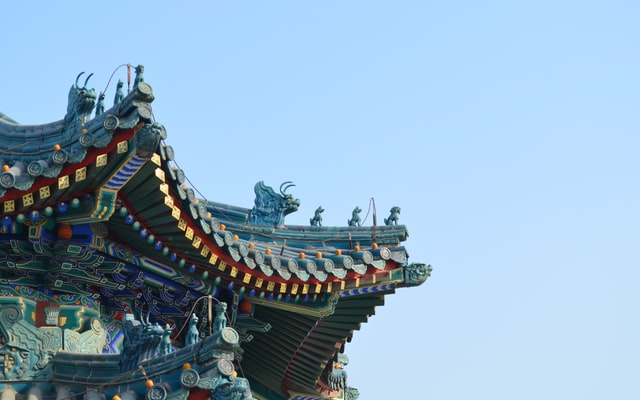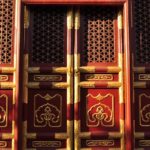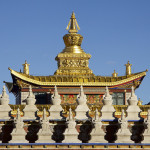Bigu: The Taoist Fasting Craze Sweeping China

Even though the Taoist fasting method of Bigu claims to have roots more than 2,000 years old, most people in China today are only just now hearing about it. It is suddenly everywhere! There are Wechat posts about it, books on it, and even weeklong retreats you can take that guarantee to restart your immune system so you can live a healthier life.
If you travel through China, you will most likely hear about it at some point. So what is Bigu? How does it differ from other sorts of fasting? Is it safe?
In Chinese, “bi” means “stop,” and “gu” means “grain.” So, literally, Bigu means to stop eating grain. Ge Hong wrote the book on Bigu in 320 a.d. in his book Baopuzi, which means Book of the Master Who Embraces Simplicity. In it he wrote:
I have personally observed for two or three years men, who were foregoing starches, and in general their bodies were slight and their complexions good. They could withstand wind, cold, heat, or dampness, but there was not a fat one among them.
He goes on to explain that even though he had never met someone who had been on a Bigu diet for more than a few years, it should be possible to go many more years on the diet and not die. Seems reasonable, right?
But Bigu goes far beyond a simple Paleo Diet, which also rejects the eating of grains. A Bigu Diet seeks to replace physical food with qi, or energy.
The goal of Bigu is to be “too full of qi to eat.” Through meditation and breathing exercises, a person practicing Bigu tries to gain as many nutrients from the world around her without actually consuming anything.
Bigu makes many claims, chief among them that it will “restart” your body’s immune system and thus cure you of diseases such as diabetes, hypertension, skin ailments, and even cancer.
It sounds very similar to the New Age of Breatharianism, whose followers desire to live on light and air alone. However, followers of Bigu are quick to reject any comparisons to Breatharianism or apastia, which they deem as unhealthy. Bigu students often ingest tea and supplements to help provide them with some nutrients and to bring their qi into balance.
While fasting in some form exists in almost every culture and has existed for thousands of years, doctors agree that fasting in any form is not healthy. Fasting in the short-term only leads to the loss of water, which will come back quickly as soon as you start eating again.
Fasting for a longer period of time can lower your metabolism rate, reduce muscle mass, and lead to organ failure.
While cutting out junk and processed foods can improve a person’s health, replacing those foods with air instead of healthy options is a dangerous way to go.
Why would someone want to try Bigu? The biggest reason most people try new diets is to lose weight. Will you lose weight if you stop eating food? Yes. Is it a healthy way to lose weight? No. But there are many other reasons why people try Bigu, and all of them are just as dubious.
Bigu makes many claims, chief among them that it will “restart” your body’s immune system and thus cure you of diseases such as diabetes, hypertension, skin ailments, and even cancer. While cutting out junk and processed foods can improve a person’s health, replacing those foods with air instead of healthy options is a dangerous way to go.
There is no scientific basis for the idea of restarting your immune system, but not eating is verifiably deadly.
While it sounds attractive – who wouldn’t want to escape the city for a few days to live on tea and meditation? – the bigu lifestyle is one that should be avoided.
While it sounds attractive – who wouldn’t want to escape the city for a few days to live on tea and meditation? – the bigu lifestyle is one that should be avoided. If you are looking for a relaxing and healthy escape for your mind and soul, there are many other options in China to choose from.
Bigu: The Taoist Fasting Craze Sweeping China
Related Reading
China Travel Tips: Amanda’s Take on Health, Safety and Romance Three Things that Chinese People Find Funny about Foreigners
Questioning the East vs. West Divide in China
12 Tips for the First-Time Traveller to China
How to Avoid China’s Crowds and Chaos
Your Guide to Travel Scams in China
Have you traveled to China? What were your impressions? Email us at editor@pinkpangea.com for information about sharing your experience and advice with the Pink Pangea community. We can’t wait to hear from you. Photo by Unsplash.









This is wildly inaccurate. Fasting promotes autophagy, the inhibition of senescent cells, ketone product producing epigenetic anti inflammatory effects, lower glucose, and gut rest. It’s one of the best and free medicines. This article is a dated joke, and “doctors agree fasting is not healthy” is absolutely the opposite.
Doctors agree that fasting is not healthy? That’s news to me, the contrary is true. It’s also untrue that fasting slows the metabolism rate, there is clearly a a confusion between fasting and calorie restriction here.